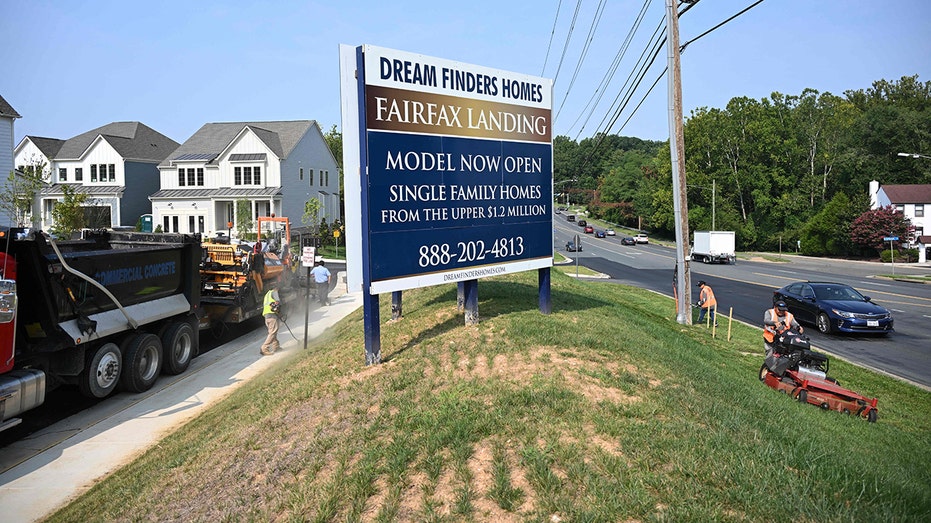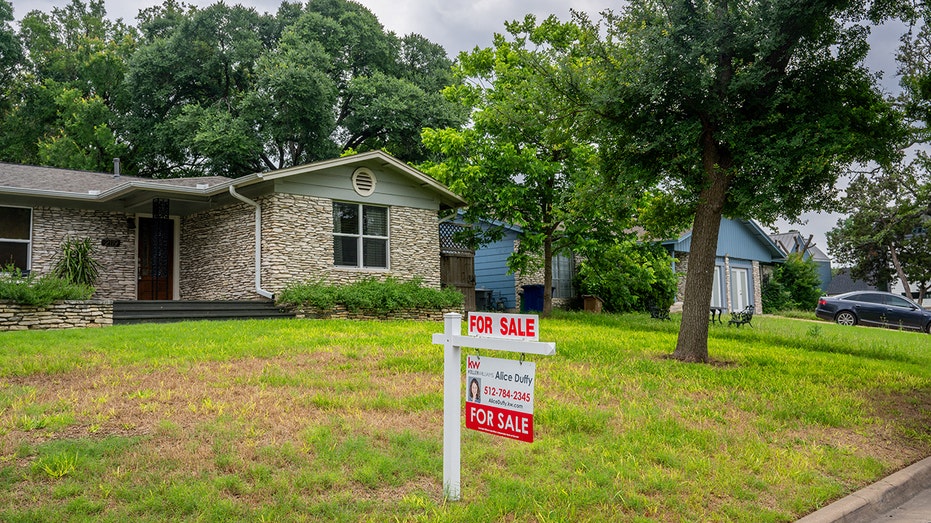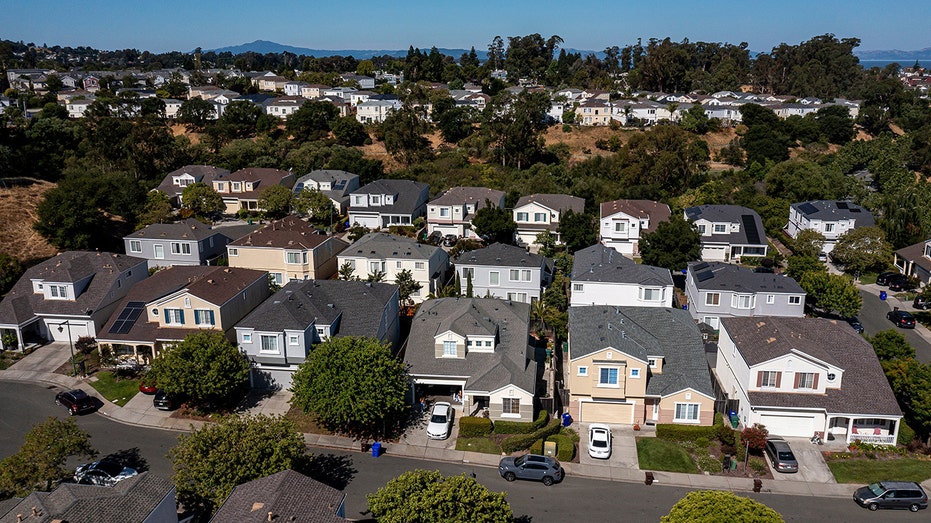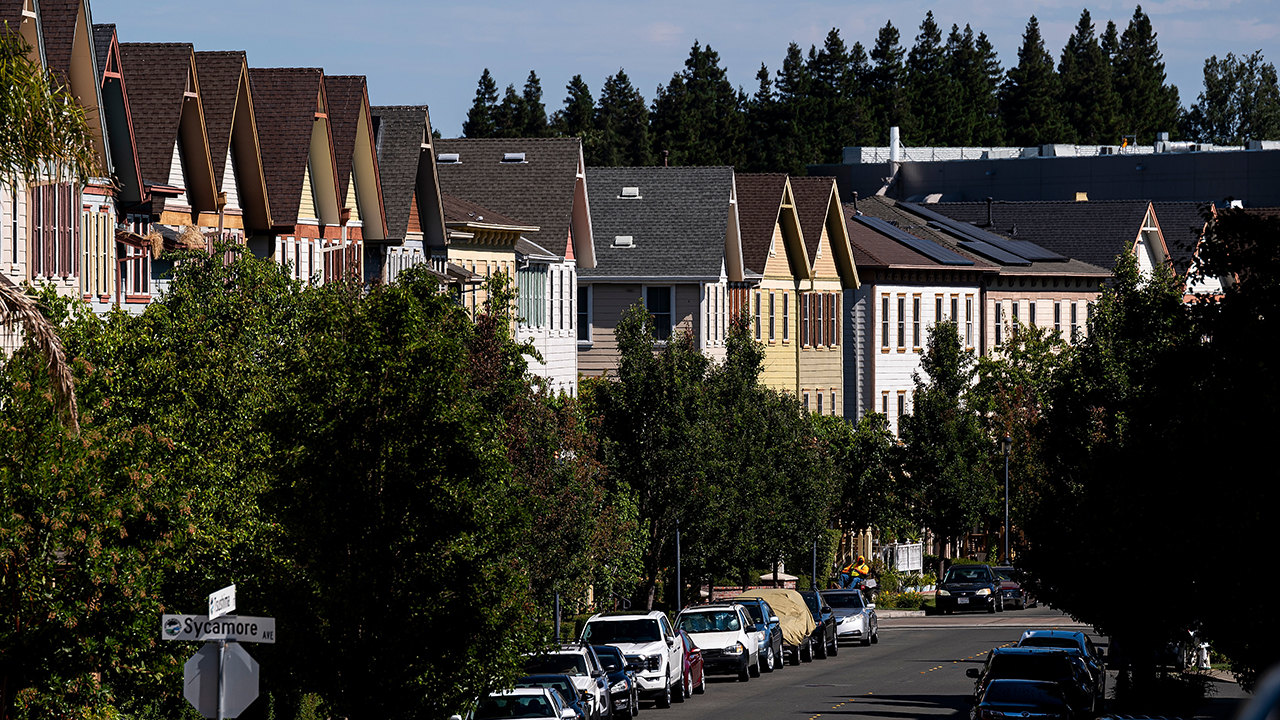Housing affordability is at the lowest level since 2007
Homes are now unaffordable in about 80% of the U.S.
Housing already experienced a short-lived recession in 2022: Sheryl Palmer
Taylor Morrison CEO Sheryl Palmer discusses the headwinds facing the housing market after a drop in August on existing home sales on 'The Claman Countdown.'
Housing prices are growing more unaffordable in the U.S., as high mortgage rates and rising home prices put ownership out of reach for millions of Americans.
That's according to a new report published by real estate data provider ATTOM, which examined 572 U.S. counties and determined that median-priced homes in about 80% of those areas are out of reach for the average income earner, who makes about $71,214 annually.
"The latest affordability data presents a clear challenge for home buyers," said Rob Barber, CEO of ATTOM. "While home prices are increasing and mortgage rates remain relatively high, these factors are making homes less affordable."
Affordability is worsening across the country, thanks to a second-quarter spike in both home prices and mortgage rates. Combined, the two have helped to push the typical portion of average wages nationwide required for major homeownership expenses up to 35.1% – the highest level since 2007.
WHY CAN'T YOU FIND A HOUSE FOR SALE?

Affordability is worsening across the country, thanks to a third-quarter spike in both home prices and mortgage rates. (Andrew Caballero-Reynolds/AFP via / Getty Images)
"The latest number is considered unaffordable by common lending standards, which call for a 28% debt-to-income ratio," the report said. "It marks the highest level since 2007 and stands well above the 21% figure from early in 2021, right before home-mortgage rates began shooting up from historic lows."
Compared to historical levels, median homeownership costs in 582 of the 589 counties examined during the second quarter of 2024 were less affordable than they were in the past. That figure is about 15 times higher than it was during early 2021.
In fact, major home ownership expenses on typical homes sold during the second quarter required an annual income of $90,598 in order to be considered affordable – which is more than 25% higher than the average national income.
There are several reasons to blame for the worsening affordability crisis.

A home available for sale is shown on May 22, 2024 in Austin, Texas. (Photo by Brandon Bell/Getty Images / Getty Images)
During the COVID-19 pandemic, home prices soared at a pace not seen since the 1970s. Homebuyers – flush with stimulus cash and eager for more space during the pandemic – took advantage of ultra-low mortgage rates and flocked to the suburbs,
MORTGAGE CALCULATOR: SEE HOW MUCH HIGHER RATES COULD COST YOU
Demand was so strong, and inventory so low, that at the height of the market some buyers waived home inspections and appraisals or paid hundreds of thousands over the asking price.
The frenzy came to a halt when the Federal Reserve embarked on the most aggressive interest rate hike campaign since the 1980s as it tried to slow the economy and crush runaway inflation. Higher interest rates helped to push the average rate on 30-year mortgages above 8% for the first time in years.

The housing shortage has only served to boost consumer demand, which is keeping prices uncomfortably high. (David Paul Morris/Bloomberg via / Getty Images)
GET FOX BUSINESS ON THE GO BY CLICKING HERE
Those higher mortgage rates, in turn, created a "golden handcuff" effect in the housing market. Sellers who locked in a record-low mortgage rate of 3% or less during the pandemic began have been reluctant to sell, limiting supply further and leaving few options for eager would-be buyers.
Mortgage buyer Freddie Mac said Thursday that the average rate on a 30-year loan this week ticked lower to 6.86% from 6.87%. While that is down from a peak of 7.79% in the fall, it remains sharply higher than the pandemic-era lows of just 3%.





















